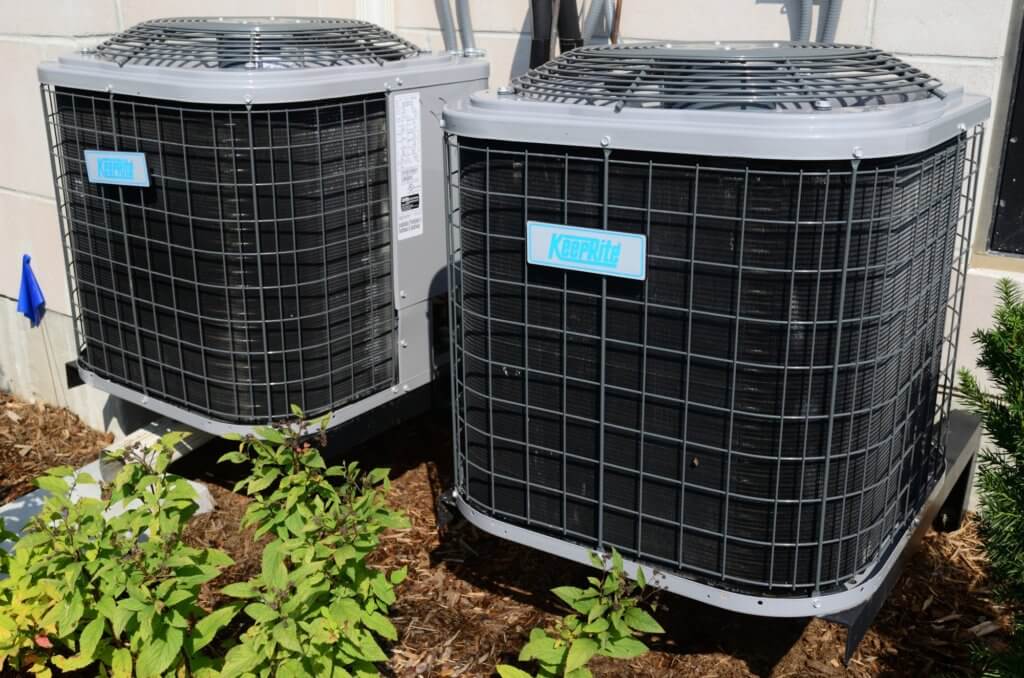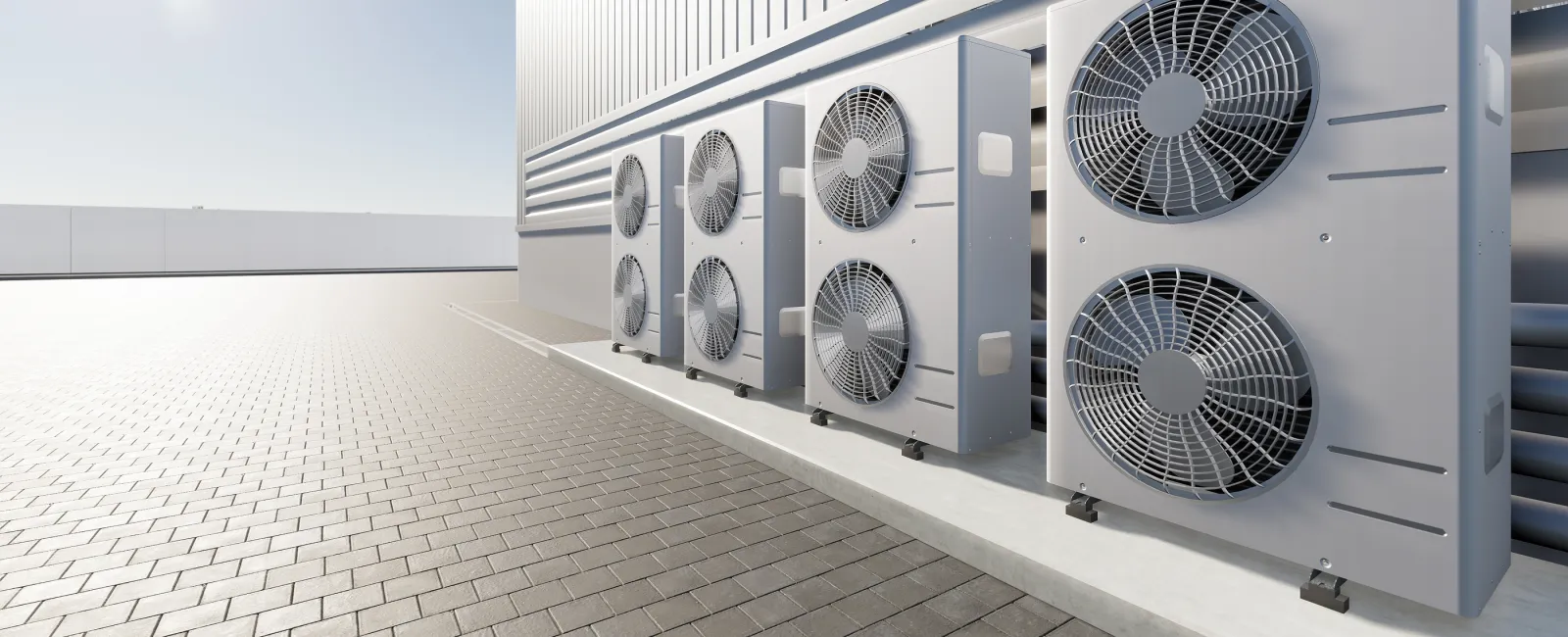Find out how HVAC experts bring insight to every project
Discovering the Essential Parts of an Effective Cooling And Heating System
A reliable cooling and heating system is developed on a number of vital parts that operate in consistency. Each part, from the thermostat to the ductwork, plays a vital function in keeping convenience and energy efficiency. Comprehending these aspects is crucial for enhancing efficiency and improving indoor air high quality. As one takes a look at these components, the detailed partnerships in between them expose understandings right into improving general system effectiveness. What details elements contribute most to this efficiency?
The Function of the Thermostat in A/c Efficiency

Usually ignored, the thermostat plays an essential function in the effectiveness of Cooling and heating systems. This tiny gadget functions as the main nerve center, controling temperature level settings and making sure optimal comfort within a room. By accurately picking up the ambient temperature, the thermostat communicates with the air, ventilation, and home heating conditioning devices to keep the preferred climate
An effective thermostat minimizes power consumption by activating the a/c system only when needed, thus preventing too much home heating or cooling. Modern smart and programmable thermostats improve this effectiveness better by permitting individuals to set routines and remotely change settings, adjusting to everyday regimens.
The placement of the thermostat is important; inappropriate area can lead to imprecise temperature level analyses, resulting in ineffective operation. Overall, a well-functioning thermostat not only improves comfort but additionally contributes markedly to power financial savings and the long life of the heating and cooling system.
Understanding the Value of Air Filters
Air filters offer an essential feature in HVAC systems by assuring that the air flowing within a space stays tidy and healthy. These filters trap dust, allergens, and other pollutants, preventing them from being recirculated throughout the environment. By recording these particles, air filters add to enhanced interior air top quality, which can greatly profit owners' wellness, specifically those with allergic reactions or respiratory conditions.
In addition, keeping tidy air filters enhances the effectiveness of cooling and heating systems. Blocked filters can limit air movement, triggering the system to function more difficult to preserve desired temperature levels, leading to boosted power usage and higher utility bills. Regularly replacing or cleansing filters is an important maintenance step that can prolong the lifespan of HVAC devices. Eventually, understanding the relevance of air filters permits house owners and building supervisors to take positive steps to ensure a well-functioning, efficient a/c system that promotes a comfortable and risk-free indoor setting.

The Performance of the Heater and Heatpump
Heaters and heatpump are essential elements of HVAC systems, responsible for providing warmth throughout cooler months. Heating systems operate by heating air via combustion or electrical resistance, then distributing it throughout the home via ducts. They normally offer fast home heating and can be fueled by gas, electrical energy, or oil, depending upon the system kind.
On the other hand, heatpump move warm as opposed to produce it. They remove warmth from the outdoors air or ground, also in low temperature levels, and move it inside your home. HVAC experts. This double performance allows heat pumps to likewise provide air conditioning in warmer months, making them versatile alternatives for year-round climate control
Both systems call for appropriate upkeep to guarantee performance and durability. While furnaces excel in extreme cold, heatpump can be useful in moderate climates. Recognizing their unique capabilities help home owners in choosing one of the most appropriate alternative for their home heating needs.
Discovering the A/c System
The cooling device is an essential part of cooling and heating systems, available in different types to match different demands. Recognizing the performance scores of these systems is essential for making informed choices concerning energy usage and expense. This section will explore the varied sorts of air conditioners and make clear just how performance ratings impact efficiency.
Kinds Of Air Conditioners
While numerous variables influence the option of a/c systems, comprehending the various kinds available is vital for property owners and building managers alike. Central air conditioning conditioners are developed to cool down entire homes or buildings, using a network of air ducts for air movement. Window systems provide a more localized solution, ideal for little areas or single areas. Mobile air conditioners provide flexibility, allowing individuals to relocate the device as needed. Ductless mini-split systems are one more alternative, incorporating the performance of main systems with the benefit of zoning, as they require no ductwork. Geothermal systems harness the planet's temperature level for energy-efficient air conditioning. Each type features distinct advantages, making notified choices essential for efficient climate control.

Effectiveness Ratings Described
Comprehending efficiency rankings is necessary for choosing the appropriate a/c system, as these metrics provide understanding right into the get more system's efficiency and energy intake. The most common ranking for air conditioning unit is the Seasonal Power Efficiency Proportion (SEER), which determines the cooling outcome during a common air conditioning period separated by the complete electric power input. A greater SEER shows much better efficiency. In addition, the Energy Efficiency Proportion (EER) is utilized for gauging effectiveness under details conditions. Another vital metric is the Energy Celebrity accreditation, which represents that a device meets stringent power performance standards. By assessing these rankings, customers can look at more info make enlightened choices that not only maximize comfort but also minimize power costs and environmental impact.
The Relevance of Ductwork and Air movement
Effective ductwork design and airflow monitoring play important duties in the overall efficiency and performance of heating and cooling systems. Correct ductwork warranties that conditioned air is distributed evenly throughout a room, reducing temperature changes and enhancing convenience. Well-designed air ducts decrease resistance to airflow, minimizing the work on HVAC tools and inevitably decreasing power intake.
Air movement monitoring entails purposefully positioning vents and registers to enhance the circulation of air. This stops usual concerns such as chilly or hot spots, which can occur when airflow is blocked or improperly well balanced. In addition, the appropriate air duct products and insulation can additionally enhance effectiveness by minimizing warm loss or gain during air transit.
An efficient ductwork system not just adds to power cost savings however can also prolong the life-span of HVAC equipment by lowering unneeded stress (HVAC experts). Recognizing the relevance of ductwork and air flow is essential for achieving peak HVAC system efficiency.
Routine Maintenance Practices to Boost Efficiency
Regular maintenance practices are vital for making sure peak performance of HVAC systems. These techniques include regular evaluations, cleansing, and essential fixings to keep the system running successfully. On a regular basis changing air filters is crucial, as blocked filters can block air movement and decrease performance. Additionally, professionals ought to examine and tidy evaporator and condenser coils to stop getting too hot and energy wastefulness.
Annual specialist evaluations are additionally recommended, as skilled technicians can determine possible issues before they rise. Lubricating moving components decreases wear and tear, adding to a much longer lifespan for the system. Guaranteeing that the thermostat operates correctly help in keeping perfect temperature level control.
Frequently Asked Concerns
Just how Often Should I Replace My Thermostat?
Thermostats need to generally be replaced every 5 to one decade, depending on usage and innovation innovations. Regular checks are recommended to assure peak efficiency, especially if experiencing inconsistent temperature control or increased energy expenses.
What Size Air Filter Is Ideal for My Heating And Cooling System?
The most effective size air filter for a HVAC system varies by system layout. Generally, it's crucial to seek advice from the proprietor's manual or check the existing filter dimensions to guarantee peak performance and air quality.
Can I Mount a Heatpump Myself?
Mounting a heatpump individually is feasible for proficient people, yet it calls for expertise of neighborhood codes and electric systems. Employing an expert is suggested to ensure appropriate installation and optimal system performance.
Exactly how Do I Know if My Ductwork Is Effective?
To figure out ductwork effectiveness, one must examine for leakages, action air movement at vents, inspect insulation quality, and evaluate temperature differences between supply and return air ducts. Expert evaluations can offer extensive understandings right into total performance.
What Are Signs My HVAC Needs Immediate Maintenance?
Signs that a heating and cooling system requires prompt upkeep include unusual sounds, inconsistent temperature levels, increased power expenses, undesirable odors, and constant cycling. Addressing these problems quickly can protect against more damages and assurance top system performance.
Air filters offer a necessary function in Cooling and heating systems by assuring that the air circulating within an area continues to be healthy and clean. In addition, preserving tidy air filters enhances the effectiveness of HVAC systems. Ductless mini-split systems are one more try here alternative, combining the effectiveness of main systems with the ease of zoning, as they require no ductwork. Recognizing efficiency scores is important for picking the best air conditioning device, as these metrics supply understanding into the system's performance and power intake. The best dimension air filter for a HVAC system differs by device design.